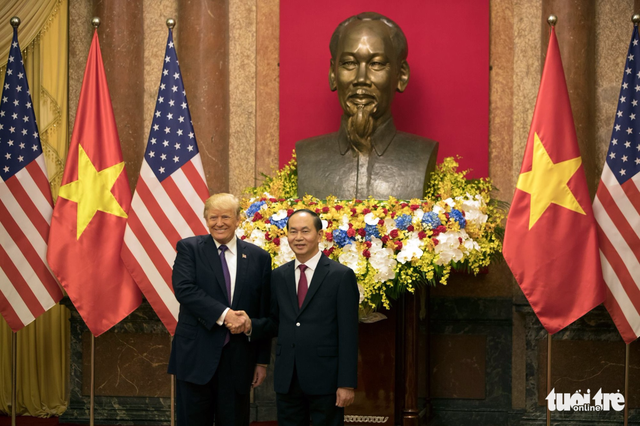US President Donald Trump told his Vietnamese counterpart Sunday he is ready to help resolve the dispute in the resource-rich East Vietnam Sea, which Beijing claims most of.
"If I can help mediate or arbitrate, please let me know... I am a very good mediator," the dealmaking American leader told Vietnamese President Tran Dai Quang during an official state visit Sunday.
Vietnam has long courted support from Washington in its dispute with China over the precious waterway, where Beijing has built military installations and artificial islands.
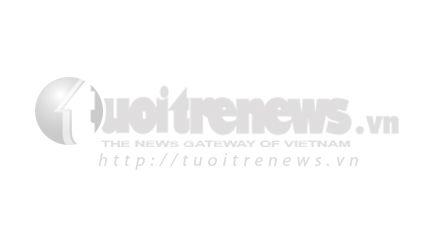 |
| Vietnamese State President Tran Dai Quang (R) stands alongside U.S. President Donald Trump during a press briefing in Hanoi, Vietnam, November 12, 2017. Photo: Tuoi Tre |
Beijing's sweeping claims also overlap with those of the Philippines, Malaysia, Brunei and Taiwan.
Trump's comments come ahead of a state visit on Sunday afternoon by Chinese President Xi Jinping who will meet with top Vietnamese leaders.
In 2014, China moved an oil rig into waters off Vietnam's coast, sparking violent protests in several Vietnamese cities.
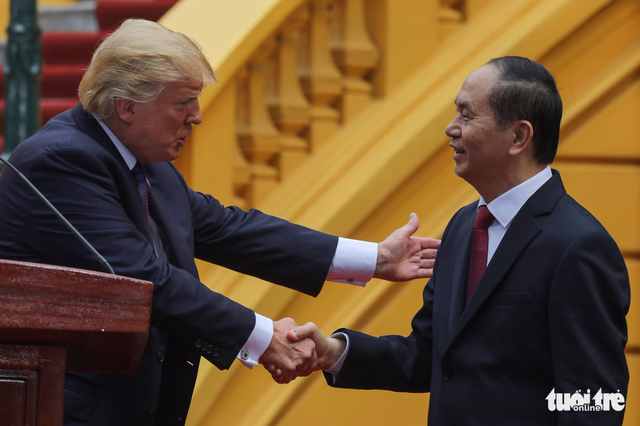 |
| Vietnamese State President Tran Dai Quang (R) shakes hands with U.S. President Donald Trump after a press briefing in Hanoi, Vietnam, November 12, 2017. Photo: Tuoi Tre |
Trump is in Hanoi for a brisk visit that could touch on boosting military support for America's former wartime foe.
Talks will also focus on promoting trade between the two countries, though Vietnam's gaping trade surplus with the United States, worth $32 billion in 2016, could be a sticking point.
Trump heads to Manila later Sunday for the final stop on his marathon Asia tour that has mainly focused on building regional consensus against North Korea's nuclear ambitions and espousing his "America First" vision of global trade.
Code of conduct
In August, foreign ministers of Southeast Asia and China adopted a negotiating framework for a code of conduct in the East Vietnam Sea, a move they hailed as progress but one seen by critics as a tactic to buy Beijing time to consolidate its power.
The framework seeks to advance a 2002 Declaration of Conduct (DOC) of Parties in the East Vietnam Sea, which has mostly been ignored by China, which has built seven man-made islands there, three of them equipped with runways, surface-to-air missiles and radars.
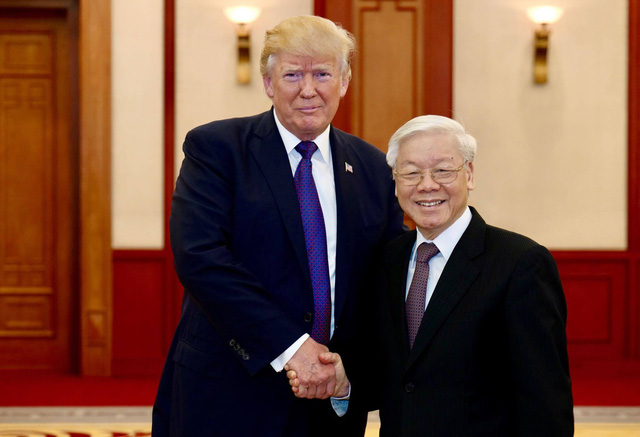 |
| General Secretary of the Communist Party of Vietnam Nguyen Phu Trong (R) shakes hands with U.S. President Donald Trump in Hanoi, Vietnam, November 12, 2017. Photo: Tuoi Tre |
All parties say the framework is only an outline for how the code will be established and critics raise doubts about how effective the pact will be.
The framework will be endorsed by China and members of the Association of Southeast Asian Nations (ASEAN) at a summit in Manila on Monday, a diplomat from one of the regional bloc’s countries said.
The next step is for ASEAN and China to start formal consultations and negotiations for the actual Code of Conduct, and the earliest that talks on this can start is February 2018, the diplomat said.
From Vietnam, Trump flies to the Philippines for a meeting with ASEAN leaders before he heads back to Washington.
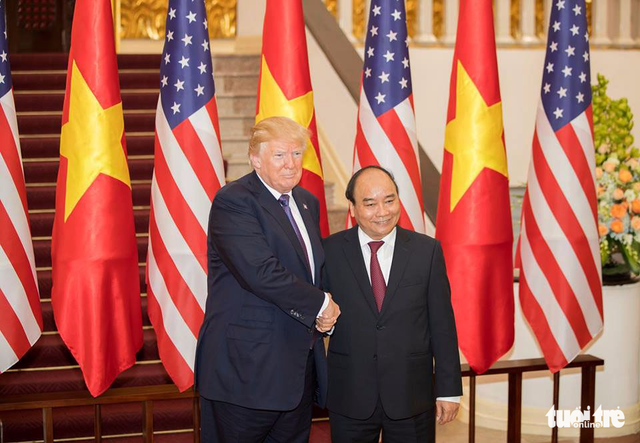 |
| Vietnamese Prime Minister Nguyen Xuan Phuc (R) shakes hands with U.S. President Donald Trump in Hanoi, Vietnam, November 12, 2017. Photo: Tuoi Tre |
Relations between Vietnam and the United States have blossomed in the decades since their war ended in 1975. A recent survey put the favorability of the United States at 84 percent among Vietnamese.
But Vietnam’s trade surplus remains an irritant for the Trump administration. At $32 billion last year, it was the sixth largest with the United States, though less than a tenth the size of China‘s.
“We want to get that straightened out very quickly,” Trump said at a meeting with Prime Minister Nguyen Xuan Phuc.



